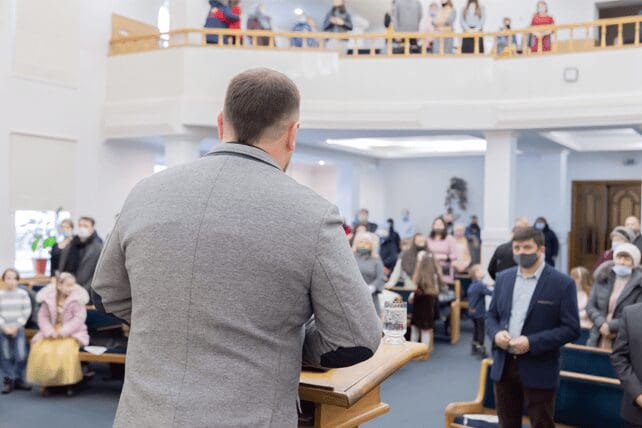(RNS) — Cooper Young, a second-year seminary student at Gordon-Conwell Theological Seminary in Massachusetts, knew he wanted to become a minister, but like many students in the past two years, his education has become a journey. Classes went from on campus and in person to online from home, and back again.
Meanwhile, since graduating from Syracuse University in 2020, Young has gone through other significant changes: He got married and, after an internship in Massachusetts, was hired as an assistant minister by his childhood church in Chittenango, New York. On the downside, he’d contracted COVID-19.
“I was still in my first year of marriage, but then on top of that, it’s a new job at a church of predominantly people over 55,” Young recalled. Charged with bringing in younger people in the middle of a pandemic, Young said he found himself fighting resistance to his ideas for growth while also fielding the congregation’s objections to the church leadership’s mask policies. “It didn’t seem like a lot was working,” he said.
The torrent of experiences — compounded by the fuzzy consciousness known as “COVID fog” — eventually impacted his mental health.
“I was having a panic attack at one point — the only time it’s ever happened in my life before,” Young said.
For many seminarians, Young is a harbinger of the difficulties many of them will face as they graduate into a religious landscape that has been transformed — spiritually, physically, politically and logistically — by COVID-19, and of the toll this new reality is taking on their mental health.
According to a recent Barna Group survey, pastors have increasingly been contemplating quitting their jobs since the beginning of 2021. In the same poll, female clergy members, like women across all industries, were found to be more likely to quit their jobs than male clergy.
Seminaries, like other institutions of higher education, have stepped up mental health services, but how much help students get can depend on the cultural climate of the school, as some schools may offer more services than others.

Pastor Cooper Young preaches at Crossroads Community Church in Chittenango, New York, on Dec. 19, 2021. Video screengrab
“Our school is pretty open about it, if you have mental health needs and we have mental health needs and we talk about it quite openly,” said Su Yon Pak, a dean and associate professor of integrative and field-based education at Union Theological Seminary in New York.
But the pandemic has put a greater focus on those struggling with their mental health, Pak said. “Because of all the constraints, the restraints, the quarantine, the fear of dying, people dying in the families, not being able to connect, absolutely. It’s not just students. We all struggled through it. It was really hard. And as a school we tried to put that upfront.”

